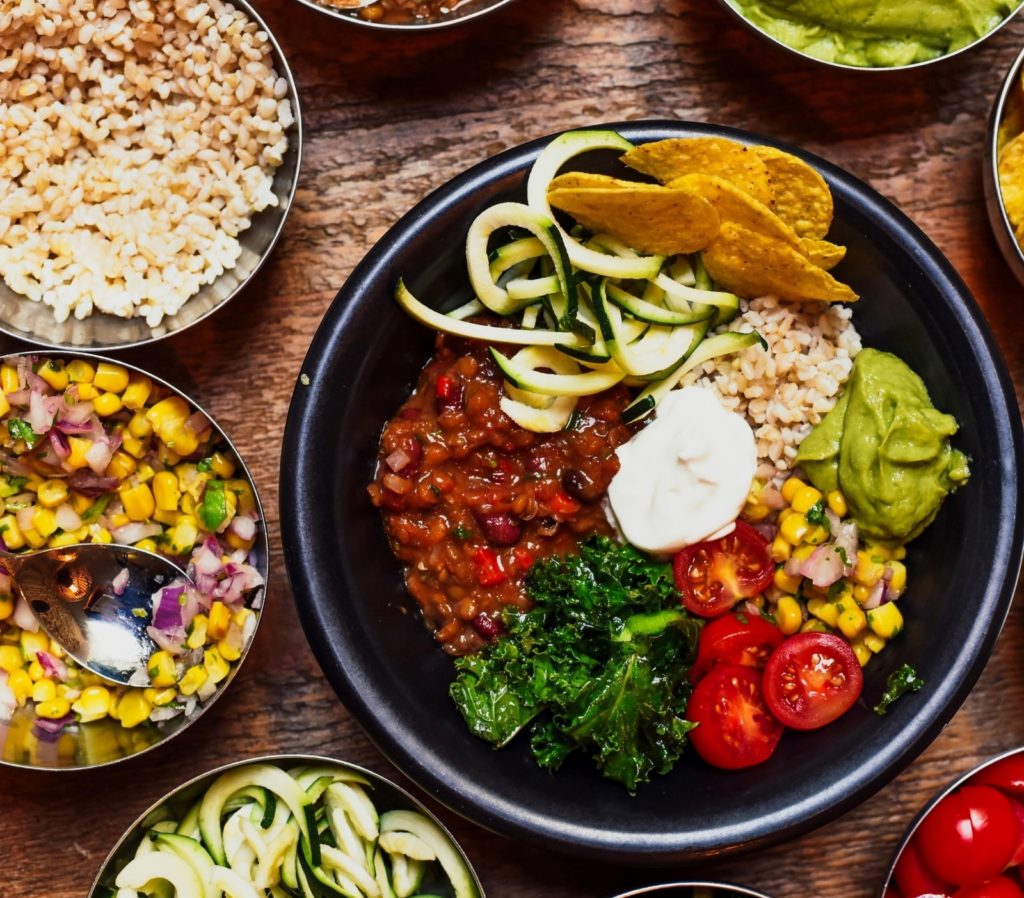
The switch to healthy vegan living or even plant-based living may be difficult at first for some. Removing animal proteins from your diet and replacing them with plant proteins requires minimal planning and some experimentation. As I discussed in my previous post on Zoonotic diseases, simulated meat products provide people with a way to switch out animal proteins from their traditional meat-based recipes with ease.
Unfortunately, not all people can afford the more expensive brands. What is important is that a healthy vegan diet does not need to rely on the more expensive synthetic meat products. They also don’t break the bank and even cost much less than purchasing animal products.
Thankfully, most un-processed whole plant foods are great sources of protein and other essential nutrients. But, some become concerned that the recommended intake of protein (0.8 g protein/kg body weight/day) cannot be met with a vegan diet. Well, it certainly can! Not only that, by switching to plant protein sources, you can increase your intake of fibre, something you can’t get by eating animal meat.
I have put together a list of 5 super healthy foods for vegan living on a budget. I have provided you with the nutritional profile of each food, and the average price (North America). Also, I thought you’d like some amazing recipes that I have personally tried and approved. P.S. they are all naturally gluten-free!
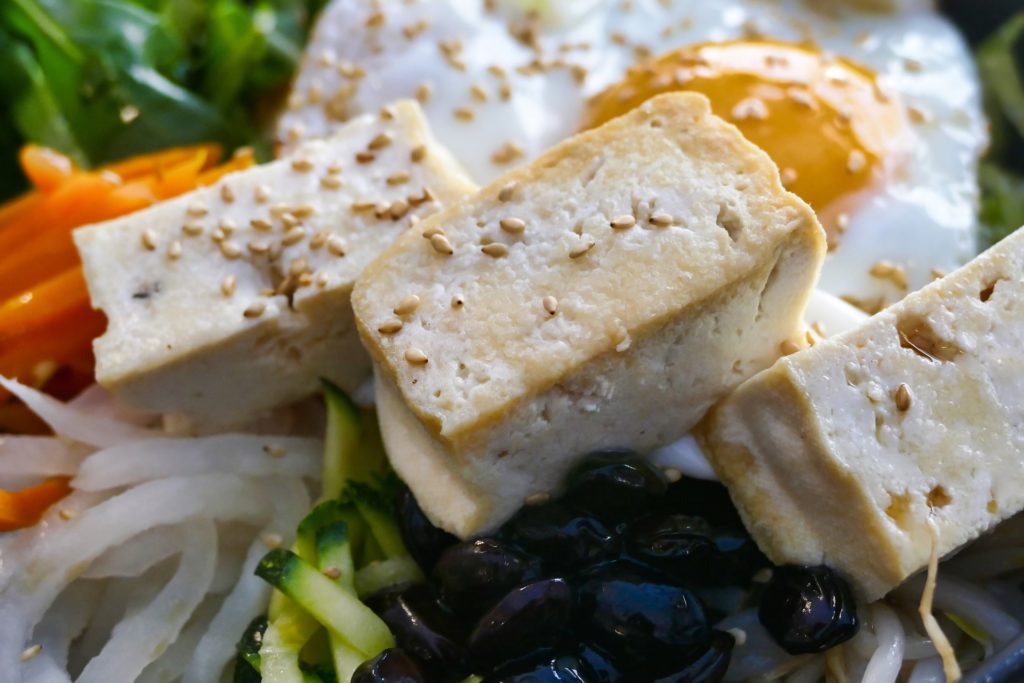
Include Tofu for healthy vegan living
Tofu is widely available, and incredibly budget-friendly. The texture of tofu can mimic the consistency of animal meats in many dishes and can be directly substituted out of your recipes for the real thing. What’s great is that tofu is minimally processed. In fact, chopping up and cooking most whole foods results in food becoming processed anyways. The thing to consider is how processed it is. In the case of tofu, you have soymilk and a curdling agent such as calcium sulfate, lemon juice, or nigiri. If you wanted to make your own tofu, it’s incredibly easy to do at home, and so good!
An important thing to note is that Tofu is a complete protein, which means it contains all 9 essential amino acids that our bodies cannot produce on their own. Tofu also is a great source of calcium, iron, minerals, phytoestrogens, and other nutrients essential to human health and well-being.
The recommended protein requirement for the average adult is 0.8 g protein/kg body weight/ day. For the average sedentary woman, just 100 grams of extra firm tofu can meet approximately 22% of their daily requirement for protein. A 100g serving for men, can meet approximately 18% of their daily requirement. For information on nutritional data, check out Nutrionix,” the world’s largest verified nutrition database”. They also provide a fantastic mobile app that allows you to track everything you eat in 60 secs/day. This makes healthy vegan living on a budget a breeze.
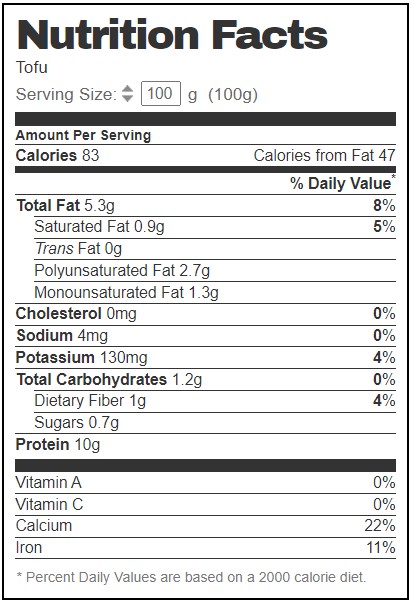
What about the price? On average you can find a package of tofu (350g) for 3$. You can even find organic tofu like this brand for around 4-5$.
Our top picks for best tofu recipes:
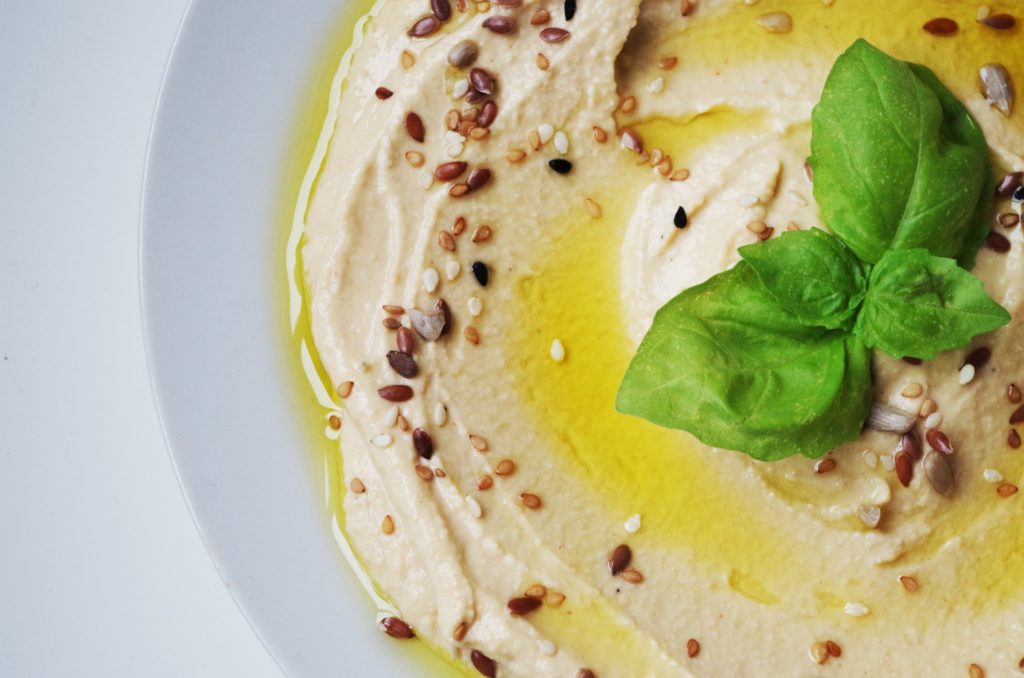
Image source: Pixaby
Chickpeas- healthy and budget friendly
Another vegan winner, and super cheap, are chickpeas (Garbanzo beans). One of my go-to snacks is hummus, which you can pretty much put on everything. In fact, hummus compared to many common dips has one of the higher “Natural nutrient-rich” scores (98.42). Unlike tofu, chickpeas do not contain all essential amino acids, but they stack up well. The only amino acids that are missing are sulfur-containing amino acids which you can get from consuming whole grain foods. Otherwise, chickpeas contain approximately 9 g of protein per 100 g serving
Other amazing benefits of chickpeas, they are a great source of dietary fibre, iron, calcium, Vitamin A, E, C, minerals, and polyunsaturated fatty acids.
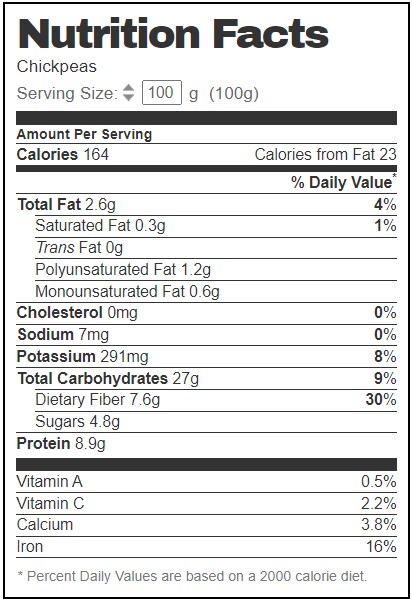
The price for this wholesome food and meat substitute? You can get a can of chickpeas ( 400g) for about 2-3$, of course, if you go organic the price increases to about 3-4$. You can also get dried chickpeas in bulk for quite cheap, soak them and use them in your recipes.
Our top picks for best Chickpea recipes created for complete protein:
1. Traditional chana masala with rice
2. Chickpea sunflower sandwiches
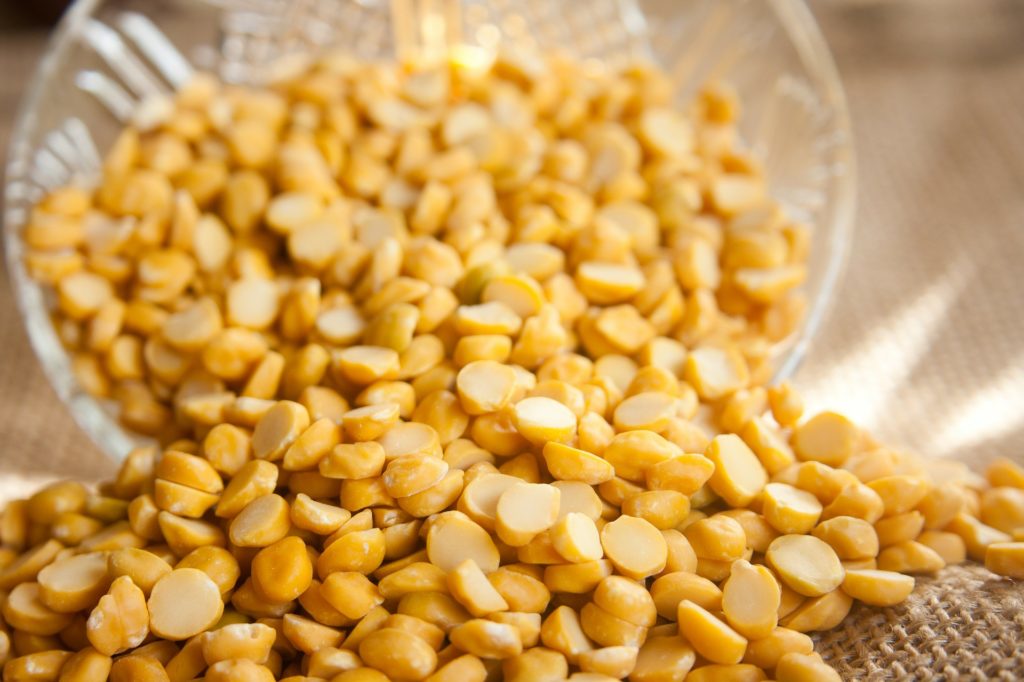
Lentils- Vegan, healthy, and cheap!
Third on the list as one of my top picks for healthy vegan living on a budget, Lentils! These are wonderful for almost everything. Lentils are also another nutrient-dense food and are high in protein. Like chickpeas, Lentils are a poor source of essential sulfur-containing amino acids. A full amino acid profile can be achieved by consuming grains like brown rice, whole wheat, etc. Importantly, you actually don’t have to consume the two food groups in the same meal, just make sure you consume them within the same day.
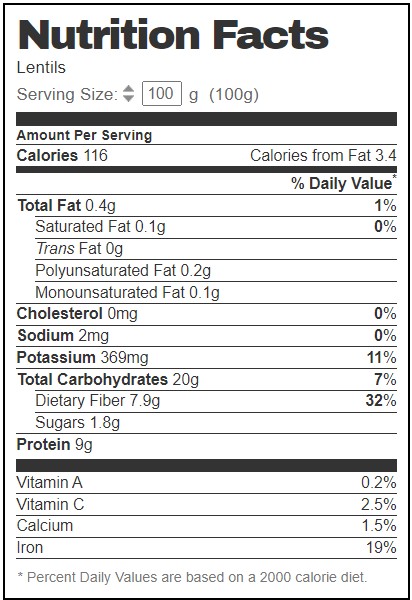
According to Nutritionix, a 100 g serving of lentils provides 9 grams of protein, 32% of your daily fibre, 19% of your daily iron, calcium, vitamins, and minerals. The price? You can buy dried lentils in bulk, for approximately .50$ per 100 g. Incredibly cheap!
Our top picks for best recipes with lentils:
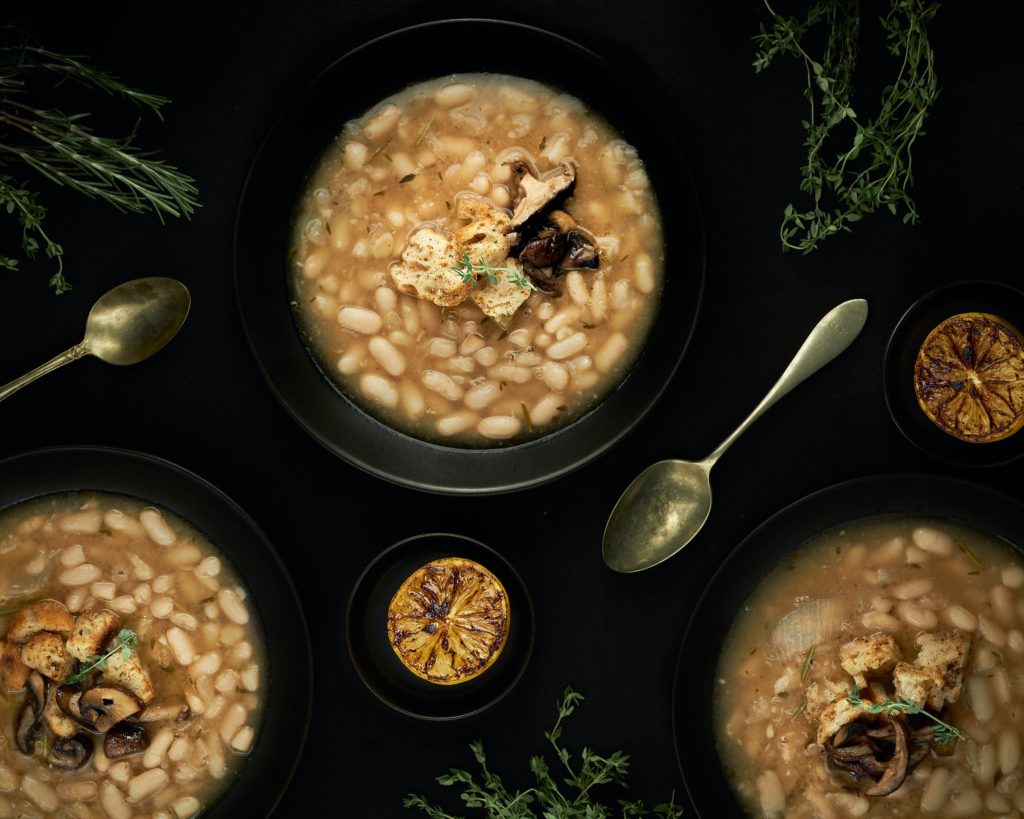
White beans- A variety of budget friendly vegan legumes
Another great option for healthy vegan living on a budget is white beans. This can include beans like cannellini beans, butter beans, and baby lima beans. What is so great about these types of beans is that they provide an incredible creamy texture and nutty flavour to your foods. They are great for soups, stews, and even pasta sauces. White beans are another great source of protein, fibre, iron, minerals, vitamins, and provide a plethora of health benefits. White beans are not a source of complete protein, and like the other sources, you can combine this food with grains.
Cannellini beans per 100g, contain 9.7 g of protein, 25% DV (daily value) of fibre, and 21 % DV of Iron (Nutritionix).
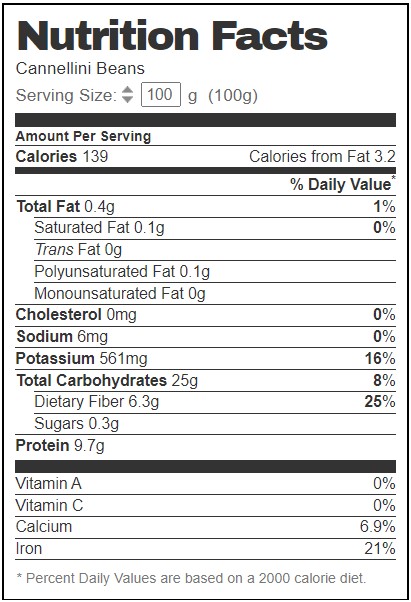
What’s the price? You can get dried white beans for approximately .50$ per 100 grams, and a can of white beans for approximately 1.50-3$. Of course, organic and non-organic play a role in the price, but either way, very economical.
Our top picks for recipes with white beans:
1. Tuscan ribollita soup-Vegan option
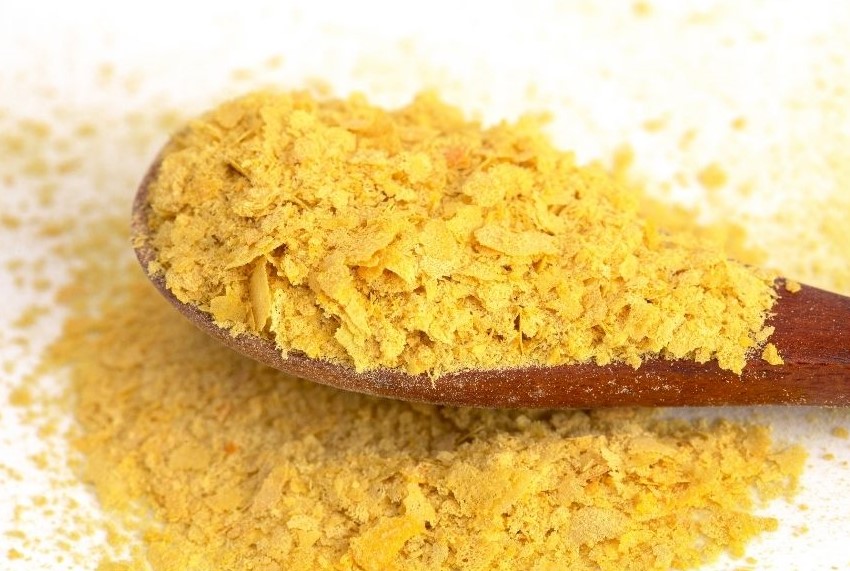
Use Nutritional Yeast for flavor and nutrients in vegan foods
Last up, but certainly not least, nutritional yeast. This food is more of a supplement and flavour enhancer, but it is an incredible powerhouse of nutrients for vegans and non-vegans. Nutritional yeast comes from the yeast Saccharomyces cerevisiae. This is the micro-organism that is used in beer, bread, and wine production. The yeast is grown in a sugar-based medium, and then harvested where it is heat deactivated and dried. Nutritional yeast in its non-fortified form is high in B1, B2, B6, protein, fibre, minerals, and other nutrients. In just 2 tbsp, you get 5 grams of protein, and that’s a complete protein!
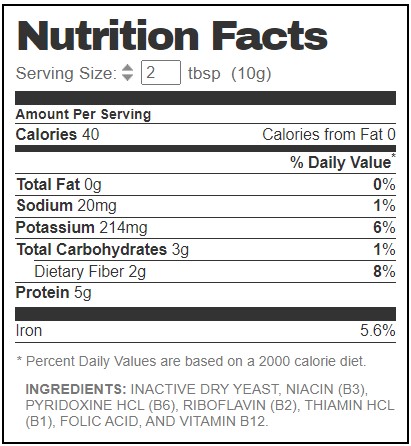
Just like all eukaryotic organisms, yeast does not synthesize its own vitamin B12. Only Bacteria can synthesize Vitamin B12. Animals do not synthesize vitamin B12 either, in fact, farm animals are fed a B12 supplement. So consuming animal flesh as a reason to ensure you get B12 is really a waste of energy inputs. You can cut out the middle man and just take a B12 supplement, or buy nutritional yeast fortified with Vitamin B12.
This food is also very similar to the flavour of parmesan cheese and can be used as a cheese substitute in many vegan dishes. Being so nutritionally dense, you only need a small serving size a day (10-15 grams). This makes the price of nutritional yeast economical, and a package goes a long way. You can get fortified nutritional yeast for approximately 6-8$ per 150 grams.
Our top picks for recipes with nutritional yeast:
Healthy vegan living is doable on a budget
Switching to a vegan diet shouldn’t be a difficult process. The variety of plant foods available, that are also super cheap, makes healthy vegan living on a budget a breeze. Beans/legumes like Tofu, Chickpeas, lentils and white beans are powerhouses of nutrients. With the right food combining, these foods will provide complete sources of protein. Incredible flavour and an array of nutrients can be added to your dishes with nutritional yeast. Not only do all of these plant foods provide incredible health benefits, but they are also all cheap and help reduce your carbon footprint. This is a major win, for your health and for our planet!
Find out how these foods stack up, check out my Food Carbon Footprint Calculator!
Check out more posts on my Sustainable living blog